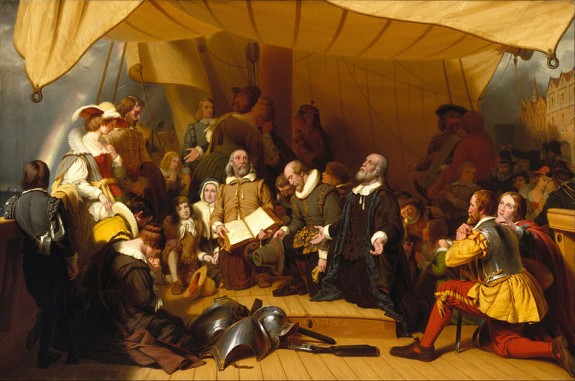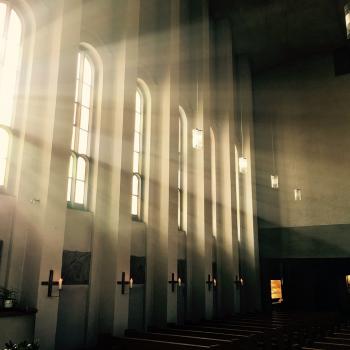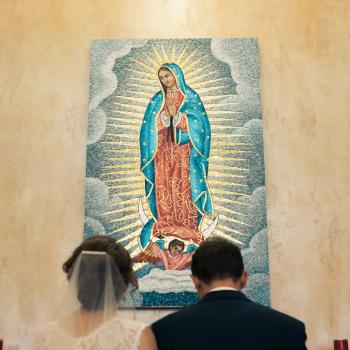Good question.
One answer, from writer E. Brooks Holifield:
Many Western Europeans think of Americans as hopelessly, bafflingly, and dangerously, religious. Many Americans think of Western Europeans as distressingly, inexplicably, and unrelentingly, secular. In 2009, the German sociologist Hans Joas observed that “it is widely accepted that the United States is far more religious than practically any comparable European state.” And he noted Western European puzzlement: “The more secularized large parts of Europe became, the more exotic the religiosity of the United States seemed to European observers.” So why are Americans, compared with Western Europeans, seemingly so religious? And are we as religious as we seem?
Sixty percent of Americans say that religion is “very important” to them; only 21 percent of Western Europeans say that. How did we get that way? How did they get that way? And how different are we?
…The prevailing view in some sociological circles is that the difference goes back to the separation of church and state. The First Amendment to the U.S. Constitution—along with state laws and constitutions—produced a competitive religious marketplace in which scores of sects competed with one another while the stodgy Europeans stuck with their state churches, and everyone (in America) knows that the marketplace outperforms monopolies, especially state-supported monopolies. American competition meant that denominations multiplied, religious entrepreneurs flourished, immigrants imported traditions, uneducated clergy attracted uneducated followers, educated clergy attracted educated followers, and radio preachers and televangelists bought up the airwaves. Separation made possible the “democratization” of American religion—a style of religious life in which every conceivable religious inclination found its niche.
…Religion has also reflected the American class system. Almost anyone familiar with religious groups in America can do a hasty class analysis of denominations and congregations. Two sociologists, Pippa Norris and Ronald Inglehart, recently correlated the prominence of religiosity and the sense of economic vulnerability in the nations of the world. Their conclusion: the more self-perceived vulnerability, the greater the importance of religion. America seems an anomaly: a rich society in which people worship, pray, and believe, as if they lived in a poverty-stricken nation. Norris and Inglehart believe that the solution lies in the distinctive form of American capitalism, a system with a sadly porous safety net. One need not adopt a flat economic determinism in order to wonder why four of the five states with the lowest median income have the highest percentage of people who say that their religion is very important to them, while three of the five states with the highest median income have the highest percentage of people who say that is only moderately important.












